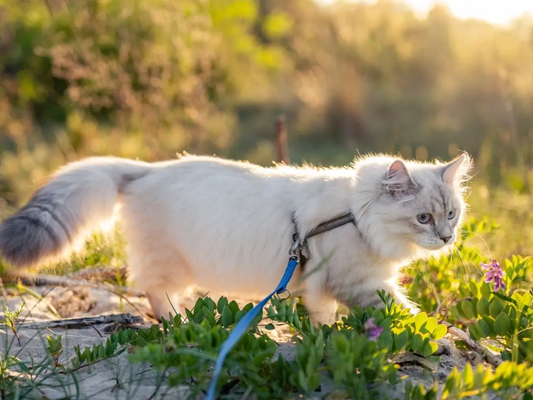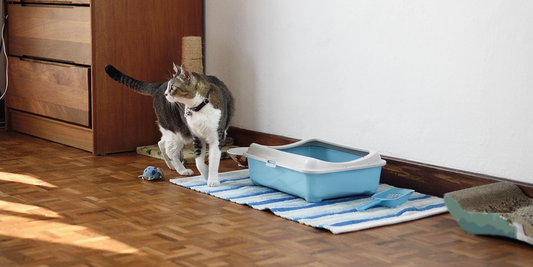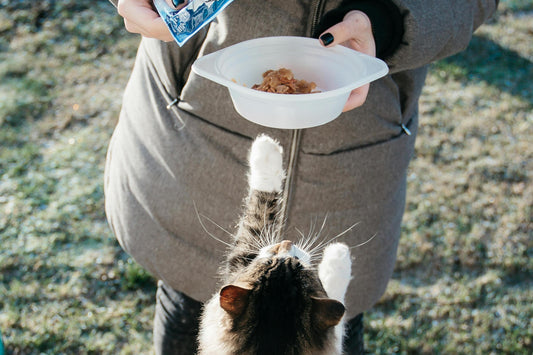Introduction:
Understanding why your cat won't drink water can be puzzling and concerning for any pet owner. Proper hydration is essential for your feline friend's health and well-being. In this comprehensive guide, we'll explore the reasons behind your cat's reluctance to drink water and provide practical tips to encourage hydration. Let's dive into the solutions to keep your beloved pet healthy and hydrated.
Understanding Feline Hydration Issues
Cats are notorious for being finicky drinkers. But when your cat consistently avoids drinking water, it can indicate underlying health issues or environmental factors that need attention. Let's delve into the possible reasons behind your cat's reluctance to drink water.
Stagnant Water Sources
Stagnant water in your cat's bowl can deter them from drinking. Cats prefer fresh, clean water, and anything less might turn them away.
Sensitivity to Water Temperature
Cats can be particular about the temperature of their water. Offering water that's too cold or too warm may discourage them from drinking.
Preference for Running Water
Some cats prefer running water over still water. This preference might stem from their instincts to drink from moving water sources in the wild.
Medical Conditions
Underlying medical conditions like kidney disease, urinary tract infections, or dental problems can affect your cat's thirst and drinking habits.
Stress or Anxiety
Stressful situations or changes in the environment can impact your cat's behavior, including their drinking habits.
Dietary Factors
Certain diets, especially dry food diets, might not provide sufficient moisture content, leading to decreased water intake.
Lack of Clean Water Sources
If your cat doesn't have access to multiple clean water sources around the house, they might not drink enough.
Environmental Factors
Environmental stressors such as loud noises, the presence of other animals, or the location of the water bowl can affect your cat's willingness to drink.
Age and Health Conditions
Older cats and those with chronic health conditions may require closer monitoring of their hydration levels due to increased risk factors.
Why Your Cat Won't Drink Water and Tips to Hydrate Them
Understanding the reasons behind your cat's aversion to water is the first step in addressing the issue. Here are effective tips to encourage hydration in your feline companion:
1. Ensure Fresh Water Daily
Regularly replace your cat's water bowl with fresh, clean water to entice them to drink. Consider investing in a water fountain to provide a constant flow of fresh water.
2. Experiment with Water Temperature
Test different water temperatures to see what your cat prefers. Some cats may enjoy slightly warmed water, while others prefer it chilled.
3. Invest in a Cat Fountain
A cat fountain provides running water, which many cats find more appealing than still water. This can encourage them to drink more frequently.
4. Wet Food Diet
Incorporate wet food into your cat's diet to increase their moisture intake. Wet food has a higher water content compared to dry kibble.
5. Add Flavor to Water
Consider adding a splash of tuna juice or chicken broth to your cat's water to enhance the flavor and make it more enticing.
6. Multiple Water Stations
Place water bowls in different locations throughout your home to ensure easy access for your cat, especially in multi-level households.
7. Regular Vet Check-Ups
Schedule regular check-ups with your veterinarian to monitor your cat's overall health and address any underlying medical issues promptly.
8. Hydration Supplements
Discuss with your vet about hydration supplements or electrolyte solutions that can help maintain your cat's hydration levels, especially during hot weather or illness.
9. Interactive Playtime
Encourage your cat to stay hydrated by incorporating interactive play sessions that stimulate their natural instincts and encourage water intake.
10. Monitor Water Intake
Keep track of how much water your cat is drinking daily. Any sudden changes in water consumption should be promptly addressed with a vet visit.
11. Consider Ceramic Bowls
Ceramic bowls tend to keep water cooler for longer periods, which might appeal to cats who prefer colder water.
12. Address Stressors
Identify and address any stressors in your cat's environment, such as loud noises or changes in routine, to help alleviate anxiety-related hydration issues.
13. Interactive Toys with Treats
Use interactive toys that dispense treats as a reward for your cat when they drink water, making it a positive experience.
14. Encourage Wet Food Treats
Offer wet food treats as a tasty incentive for your cat to consume more fluids throughout the day.
15. Gradual Diet Transition
If switching your cat to a wet food diet, do so gradually to prevent digestive upset and ensure they adjust to the new diet comfortably.
FAQs
Q: How can I tell if my cat is dehydrated?
A: Signs of dehydration in cats include dry gums, sunken eyes, lethargy, and loss of skin elasticity. If you suspect dehydration, seek veterinary care immediately.
Q: Can dehydration in cats be life-threatening?
A: Yes, severe dehydration can lead to serious health complications and even prove fatal if left untreated. It's crucial to address dehydration promptly.
Q: Are there any home remedies for hydrating my cat?
A: While maintaining hydration is essential, it's best to consult with a veterinarian for appropriate hydration solutions tailored to your cat's specific needs.
Q: How much water should my cat drink daily?
A: Cats typically need 3.5 to 4.5 ounces of water per 5 pounds of body weight daily. However, individual water needs may vary based on factors like diet and activity level.
Q: Can I mix water with my cat's food to increase hydration?
A: Yes, adding water to your cat's wet food can increase their moisture intake. It's a simple way to boost hydration, especially for cats reluctant to drink from a water bowl.
Q: Should I be concerned if my cat drinks too much water?
A: Excessive thirst can indicate underlying health issues such as diabetes or kidney disease. If your cat is drinking excessively, consult your veterinarian for proper evaluation and diagnosis.
Conclusion:
Ensuring your cat stays hydrated is vital for their overall health and well-being. By understanding the reasons behind your cat's reluctance to drink water and implementing effective hydration strategies, you can help your feline companion lead a healthy and happy life. Remember to consult with your veterinarian for personalized advice and guidance on maintaining your cat's hydration levels.








